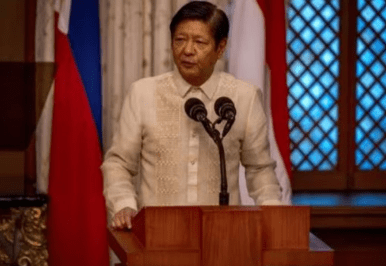Final agreements on South China Sea security are reached between Vietnam and the Philippines.
During a state visit to Hanoi by President Ferdinand Marcos Jr., Vietnam and the Philippines announced their agreement to enhance cooperation between their coastguards. The aim is to prevent untoward incidents in the South China Sea, where both Southeast Asian nations have competing claims. The South China Sea is a crucial passage for $3 trillion of annual ship-borne trade, and China asserts almost complete ownership over the area.
Vietnam and the Philippines formalized their commitment to security in the South China Sea through two memoranda of understanding. The agreements focus on “incident prevention in the South China Sea” and “maritime cooperation” among their respective coastguards. The announcement was made during a formal ceremony at Vietnam’s presidential palace by an official representing the Vietnamese government.
The recently announced agreements in Hanoi might provoke tension with Beijing, particularly if they open avenues for potential compromises on contested claims. China typically regards advancements in resolving border disputes with skepticism when involving other claimants in the South China Sea.
Both Hanoi and Manila have previously encountered China’s coastguard, but tensions escalated in the past year with increased confrontations between Chinese and Philippine vessels. These incidents have strained relations, especially given the Philippines’ alignment with the United States.
The maritime cooperation agreement intends to form a comprehensive partnership between the Coast Guards of Vietnam and the Philippines. This collaboration will focus on enhancing capabilities through activities such as capacity building, training, and personnel and ship exchanges. President Ferdinand Marcos Jr. highlighted these goals during discussions with Vietnamese Prime Minister Pham Minh Chinh.
President Ferdinand Marcos Jr. reaffirmed their commitment to defending sovereignty in the South China Sea during his visit to Vietnam. Emphasizing Vietnam as the Philippines’ strategic partner, Marcos focused on maritime cooperation. The visit, fostering bilateral ties, included agreements on rice, trade and agriculture. Notably, no meeting was scheduled with Vietnam’s Communist Party chief Nguyen Phu Trong.
Communist Party chief Nguyen Phu Trong attended a parliamentary session in mid-January, dispelling health concerns. President Marcos met Vingroup’s head, Pham Nhat Vuong, to discuss electric car collaboration. VinFast, Vingroup’s electric car unit, plans a business network in the Philippines.
Marcos highlighted the Philippines’ role in EV battery production due to cobalt, copper, and nickel reserves, aiming to boost bilateral trade from $7 billion to $10 billion.













